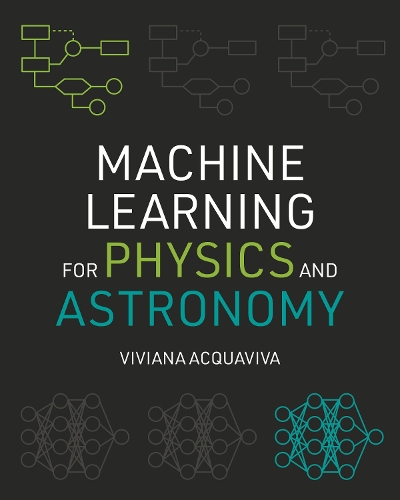
Machine Learning for Physics and Astronomy
(Hardback)
Available Formats
Publishing Details
Machine Learning for Physics and Astronomy
By (Author) Viviana Acquaviva
Princeton University Press
Princeton University Press
15th August 2023
United States
Classifications
Tertiary Education
Non Fiction
Physics
Astrophysics
Astronomy, space and time
530.0285
Physical Properties
Hardback
280
Width 203mm, Height 254mm
Description
A hands-on introduction to machine learning and its applications to the physical sciences.
As the size and complexity of data continue to grow exponentially across the physical sciences, machine learning is helping scientists to sift through and analyse this information while driving breathtaking advances in quantum physics, astronomy, cosmology, and beyond. This incisive textbook covers the basics of building, diagnosing, optimising, and deploying machine learning methods to solve research problems in physics and astronomy, with an emphasis on critical thinking and the scientific method. Using a hands-on approach to learning, Machine Learning for Physics and Astronomy draws on real-world, publicly available data as well as examples taken directly from the frontiers of research, from identifying galaxy morphology from images to identifying the signature of standard model particles in simulations at the Large Hadron Collider.
- Introduces readers to best practices in data-driven problem-solving, from preliminary data exploration and cleaning to selecting the best method for a given task
- Each chapter is accompanied by Jupyter Notebook worksheets in Python that enable students to explore key concepts
- Includes a wealth of review questions and quizzes
- Ideal for advanced undergraduate and early graduate students in STEM disciplines such as physics, computer science, engineering, and applied mathematics
- Accessible to self-learners with a basic knowledge of linear algebra and calculus
- Slides and assessment questions (available only to instructors)
Reviews
"Winner of the Chambliss Astronomical Writing Award, American Astronomical Society"
Author Bio
Viviana Acquaviva is professor of physics at the New York City College of Technology and the Graduate Center, City University of New York, and the recipient of a PIVOT fellowship to apply AI tools to problems in climate. She was named one of Italys fifty most inspiring women in technology by InspiringFifty, which recognizes women in STEM who serve as role models for girls around the world.
